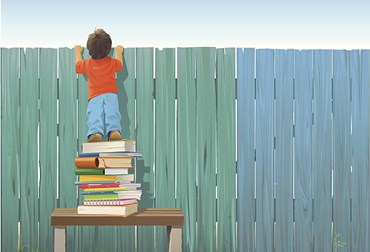Having a Choice Boosts Your Curiosity - Why you should always make your own choices
26 Oct 2023
Imagine yourself on a lazy evening. You have just decided that you want to watch a movie on Netflix, but, as always, it is hard to choose which movie you would like to see. Perhaps it might be a good idea to let somebody else make the choice for you or to let Netflix play a random movie so that you don’t have to think about it anymore?

The Link Between Choice and Curiosity
Imagine yourself on a lazy evening. You have just decided that you want to watch a movie on Netflix, but, as always, it is hard to choose which movie you would like to see. Perhaps it might be a good idea to let somebody else make the choice for you or to let Netflix play a random movie so that you don’t have to think about it anymore?
These options might sound appealing, but is giving up on having a choice such a good idea? Are there any beneficial effects of choice that should make you want to hold on to the remote control instead of giving it away to your partner or your best friend?
A study by Romero Verdugo, myself, and our colleagues (2022) investigated the potential benefits of having a choice by looking at the link between choice and curiosity. We constructed a task in which participants could choose between two very similar lotteries. The lottery that they chose would be played for them, and participants would be rewarded with the outcome of the lottery. However, in some cases, the participants did not have to make the choice themselves: The computer would select which lottery would be played, and participants simply had to press a button to actually play the corresponding lottery.
For each lottery that participants chose or that was chosen for them, they had to indicate how curious they were about the outcome of that lottery. In a follow-up experiment, curiosity was measured in a more implicit way, by letting participants indicate whether they were willing to wait to see the outcome of the lottery. This enabled us to investigate whether curiosity was higher for chosen compared with unchosen lotteries and whether people were even willing to pay with their precious time to satisfy their curiosity.
What do you think? Would you be more curious about the outcomes of lotteries that you choose yourself than when the choice was made for you? Intuitively, it should not matter at all, since the lotteries looked very similar. Still, we found that people were more curious about the outcomes of chosen lotteries than about lotteries that were chosen for them. More strikingly, people were more often willing to wait a few seconds to see the lottery outcome for chosen compared with unchosen lotteries.
Perhaps you are wondering whether this curiosity boost is really due to the choice itself. It might also be the case that we are more curious about the chosen than the unchosen lotteries because we can always choose the option that we prefer. If the decision is made for you, you might be disappointed if the computer chooses the lottery that you would not have chosen yourself, right?
However, the results showed that people were still more curious about the outcomes of chosen lotteries compared with outcomes of unchosen, but preferred lotteries. In other words, even compared with when the computer chooses the lottery that you would also have chosen yourself, your curiosity is boosted even more when you are actually making this choice yourself.
Conclusion
So, clearly, choice boosts our curiosity. These findings might be applicable to situations in which boosting curiosity is important, such as education and the workplace, or when promoting health behavior change. And please remember: Next time when you are watching Netflix, make sure you keep the remote control in your own hands such that you can choose which movie to watch tonight. This is even a good idea when you know that your Netflix buddy will make the same decision as you would. This choice will likely boost your curiosity about the movie, which might, in turn, make your evening more pleasant and satisfying.
Key Points
- We often feel that it is easier to have others make choices for us.
- A recent study looked at the link between choice and curiosity.
- The results showed that making a choice ourselves makes us more curious about the outcome.
References: Romero Verdugo, P., van Lieshout, L. L. F., de Lange, F. P., & Cools, R. (2023). Choice Boosts Curiosity. Psychological Science, 34(1), 99–110.



